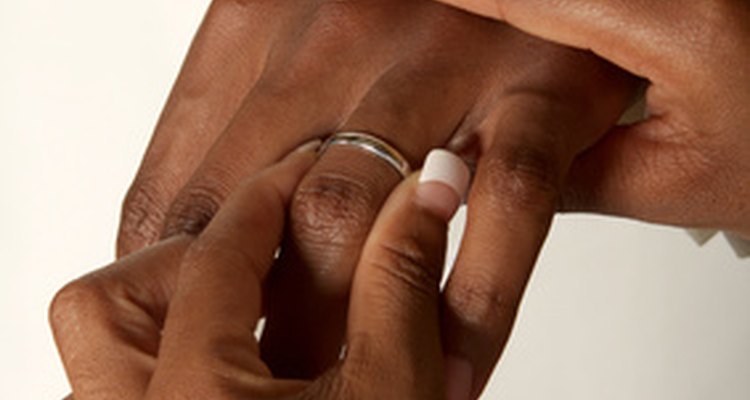
Many couples seek to include elements of their cultural heritage in their wedding ceremonies. African wedding traditions are now a part of many North American wedding ceremonies. Wedding traditions vary widely around the African continent. Each tribe and ethnic group has its own wedding traditions. However, throughout the continent, many elements of traditional wedding attire are the same.
History
Traditional African weddings and clothing gained popularity in the West in the 1960s during the Black Pride movement. According to the Oakland Museum of California, Ghana's first president, Kwame Nkrumah, wore kente cloth “during an historic visit to Washington, D.C., in 1958,” thus establishing “the cloth as a potent symbolic image for Africans and African Americans." Elaborate versions of items of African clothing that were popular during the 60s and 70s, like the dashiki, are part of traditional African wedding attire.
Women’s Wear
As in other countries, African brides often wear elaborate and expensive clothes on their wedding day. The West African wrapper set is worn widely in wedding ceremonies. It consists of a buba (a traditional African blouse,), an iro (a long wrap skirt), and gelee (head-wrap). While the wrapper set itself is not considered formal attire, sets worn for weddings are made of fine, embroidered fabrics. Gelees worn for weddings can very be large and elaborate.
Men’s Wear
In traditional African wedding ceremonies, men wear a fila or kufi (a round box hat), sokoto (slacks that tie at the waist and narrow at the ankle) and either a dashiki or an agbada, or boubou (a long flowing robe). In some families, it is a tradition for a man to wear his father's or grandfather's agbada for wedding ceremonies. Both dashikis and agbadas are intricately embroidered for wedding ceremonies.
Textiles
Traditional African wedding attire can be made from cotton brocade, lace, linen and satin, as with Western style wedding dresses. Of course, African textiles are also used in wedding dresses. According to Ghana Bride Magazine, Yoruba Ashoke fabric is especially suited for wedding outfits because of its softness. Brides and grooms wear clothes made of the same fabric.
Colors
Most African brides and grooms wear white on their wedding day. White has significant symbolism for both Christians and Muslims in Africa. For African Christians, white represents purity and salvation. For African Muslims, white represents purity and equality among the faithful. Couples who choose not to wear white usually opt for either blue, the color of peace, or purple, the color of African royalty. Brides and grooms usually wear the same color, or different shades of the same color.
Related Articles
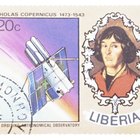
Liberian Fashions, Styles & Wedding ...
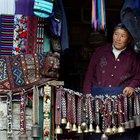
What Kind of Clothes Do They Wear in ...

Hispanic Clothing History
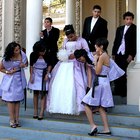
Mexican Quinceanera Traditions

What Do Chinese Women Wear?
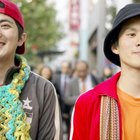
Traditional Japanese Hats for Men

Quinceanera Requirements

What Kinds of Clothes Do They Wear in ...

What Type of Clothes Do Mexicans Wear?

Bride & Groom Dress Etiquette for a ...

Jamaican & Rastafarian Clothing

The History of the Boutonniere

Traditional Chilean Wedding Attire

The History of Satin Fabric

What Is the Traditional Dress Color for ...

What Kind of Clothing Do People in Mali ...

How to Tie a Hachimaki

What Do Women Pirates Wear?
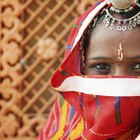
What Can You Wear for a Hindu ...

What Is an African Kufi Hat?
References
Writer Bio
Based in Toronto, Kaelyn Moore has been a freelance writer and researcher since 2003. Her writing has appeared in "The Dictionary of Literary Characters," "The Encyclopedia of Slavery and Freedom," "Hotel Critical Review" and The University of Leicester's "Peer Review." She holds a Bachelor of Arts from the University of Western Ontario and a Master of Arts in English literature from McGill University.
Photo Credits
Bride Commitment image by Francois du Plessis from Fotolia.com